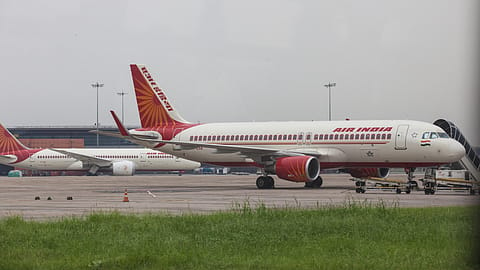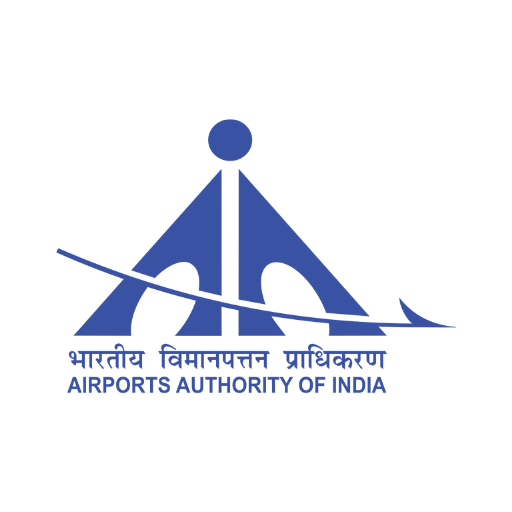IndiGo and Air India flights thrown off course as Pakistan shuts airspace; fares, delays likely to soar
Airlines may need to cut passenger and cargo loads to offset higher fuel consumption and operational costs from rerouted flights.

As Pakistan responds to India’s diplomatic measures by completely closing its airspace, international flights from Delhi and other northern Indian cities are expected to face delays and higher fares. A Bloomberg report notes that flights to Europe and North America—including the U.S. and Canada—could be extended by up to two to three hours due to rerouting.
“The impact will be on ultra-long-range flights in terms of time and payload carriage limitations, which would mean more fuel burn, thus, increasing the cost of operations,” said P.P. Singh, a senior manager at erstwhile carrier Jet Airways Ltd., according to Bloomberg.
The closure forces airlines to divert flights over the Arabian Sea, bypassing Pakistan’s airspace, which serves as a crucial corridor for west-bound departures from cities like Delhi, Amritsar, Jaipur, Lucknow, and Varanasi, according to an Economic Times report.
“The airspace over the Persian Gulf, which will provide an alternative route, is already limited and congested and that may further add to flight delays,” Singh added.
As a result, airlines may need to cut passenger and cargo loads to offset higher fuel consumption and operational costs from rerouted flights.
According to Bloomberg, the airspace restriction will particularly affect Air India and IndiGo. Air India, which operates the highest number of medium- and long-haul flights to the west, runs as many as 71 weekly flights to North America and 133 to 10 destinations across Europe. IndiGo, India’s largest carrier, is also expected to be impacted as it prepares to launch direct flights to Europe starting July this year.
In response to the April 22 terrorist attack in Pahalgam that claimed 26 lives, India on April 23 took a series of strong diplomatic and strategic measures. These included closing the Wagah-Attari border, suspending the Indus Water Treaty, and declaring all Pakistani nationals—including diplomats and defence personnel—persona non grata.
Recommended Stories
Reacting sharply, Pakistan’s National Security Committee (NSC) announced reciprocal steps on Thursday. The country closed its airspace to Indian airlines and suspended all bilateral trade. Notably, bilateral trade between the two nations had seen a sharp rebound in 2024, hitting a five-year high of $1.2 billion, a 127% increase from 2023. The Pakistan NSC strongly opposed India’s move to place the Indus Water Treaty in abeyance, warning that any attempt to stop or divert water flows would be treated as an act of war. The committee also threatened to nullify other bilateral agreements, including the 1972 Shimla Accord, and rejected any third-party mediation on Jammu and Kashmir.
Air India and IndiGo have confirmed disruptions, stating that overseas flights will now be rerouted. The airlines said these extended flight paths would result in increased travel times and may impact scheduling.
“Due to the announced restriction of Pakistan airspace for all Indian airlines, it is expected that some Air India flights to or from North America, UK, Europe, and Middle East will take an alternative extended route,” Air India said in a post on X on Thursday.
“Air India regrets the inconvenience caused to our passengers due to this unforeseen airspace closure that is outside our control. We would like to reiterate that at Air India, the safety of our customers and crew remains top priority,” the airline added.
(INR CR)
“Due to airspace closure by Pakistan, a few of our international flights continue to be impacted. Our teams are working diligently to assess the situation and assist impacted customers with the best possible alternatives. This sudden announcement is beyond our control, and we sincerely regret the disruption it may have caused to your travel plans. If your flight is impacted, we encourage you to visit our website to explore flexible rebooking options or claim a refund as per your preference,” IndiGo said in a statement on X.
This is not the first time Pakistan has closed its airspace to Indian airlines. A similar ban was enforced in 2019 following the Pulwama terror attack, after which the Indian Air Force carried out airstrikes on an alleged terrorist camp in Balakot. That closure lasted nearly five months. According to Skift, Indian airlines around that time reportedly suffered collective losses of approximately ₹550 crore (around $65 million).
Longer flight times are expected to result in higher fares for passengers in the coming weeks.

